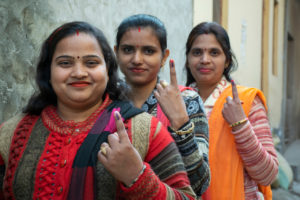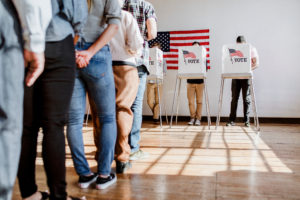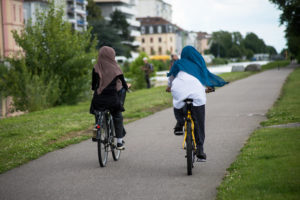Air pollution is an environmental and human health crisis: it is the greatest environmental threat to human health. Air pollution is responsible for about 7 million deaths each year globally, and this number is rising. Almost everyone on Earth breathes air that exceeds WHO air quality limits. Because air pollutants don’t stay in one place, teamwork across regions is needed to make comprehensive improvements in air quality. There are many practical ways that we can all contribute to reaching clean air goals. This Clean Air day we invite you to participate in the endeavor to improve The Air We Share.
Air pollution impacts everyone’s health. Short-lived climate pollutants such as methane, hydrofluorocarbons (HFCs), black carbon, and tropospheric ozone increase heart and lung disease, strokes, heart attacks, chronic and respiratory diseases such as bronchitis, aggravated asthma and other cardio-respiratory symptoms. These pollutants also exacerbate the effects of climate change, which has consequences for human well-being. But reducing short-lived climate pollutants is the fastest, most effective way to prevent the worst impacts of climate change while improving air quality. Many practical options are available for reducing short-lived climate pollutants such as reducing combustion sources and transitioning to renewable energy. Reducing short-lived climate pollutants is an effective way to both improve communities’ immediate health and improve long-term outcomes from climate change impacts. It’s truly a win-win.
There are lots of ways to participate in improving clean air regulations. Governments can reduce air pollution by implementing policy programs that support lower emissions in transportation, energy production, industry, food and agriculture, waste management, and household air pollution. Policymakers can improve air quality by increasing regulations on harmful air pollutants from industrial sources, phasing out petrol and diesel-based cars, and transitioning transportation systems to active and public transit. They can invest in renewable energy sources, implement policies that increase access non-polluting energy sources in all homes, implement policies that improve municipal solid waste management and reduce emissions from that sector, reduce subsidies from fossil fuels, integrate air quality and climate planning, management and emissions inventories, monitor air quality, assess pollution sources and systematically reduce them.
Individual people can also help protect the air we share, by communicating with their representatives to discuss the advantages of clean air policy, demonstrating support for policies that reduce air pollution, and electing representatives that proactively work to improve community air quality standards. You can start by finding your own city’s air quality by checking the BreatheLife Website. Cities that join the BreatheLife Cities Network commit to putting their city on the journey to meet WHO Air Quality Guidelines by 2030. Your city can join the WHO Breathelife Campain to gain access to resources and peer support as we collectively work to improve air quality. County guides are available for in depth descriptions of Air Quality Life Indexes.
Air pollution is such a truly global problem that governments have to work together to solve it. Specific transboundary air commitments such as the Malé Declaration and the UNECE Convention on Long-range Transboundary Air Pollution provide model examples for how governments can collaborate to reach collective air quality goals.
Communities that are celebrating Clean Air Day with special events can register their events here. Toolkits provide solutions for air pollution, allowing you to pick and choose what is right for you. No matter what your role, whether you are a business, a government, school or individual, toolkits provided by the UN Environment Programme provide options to participate this Clean Air Day in acting to improve The Air We Share. Please tag your activities with #WorldCleanAirDay and #TheAirWeShare so we can all celebrate together as we improve global air quality.



